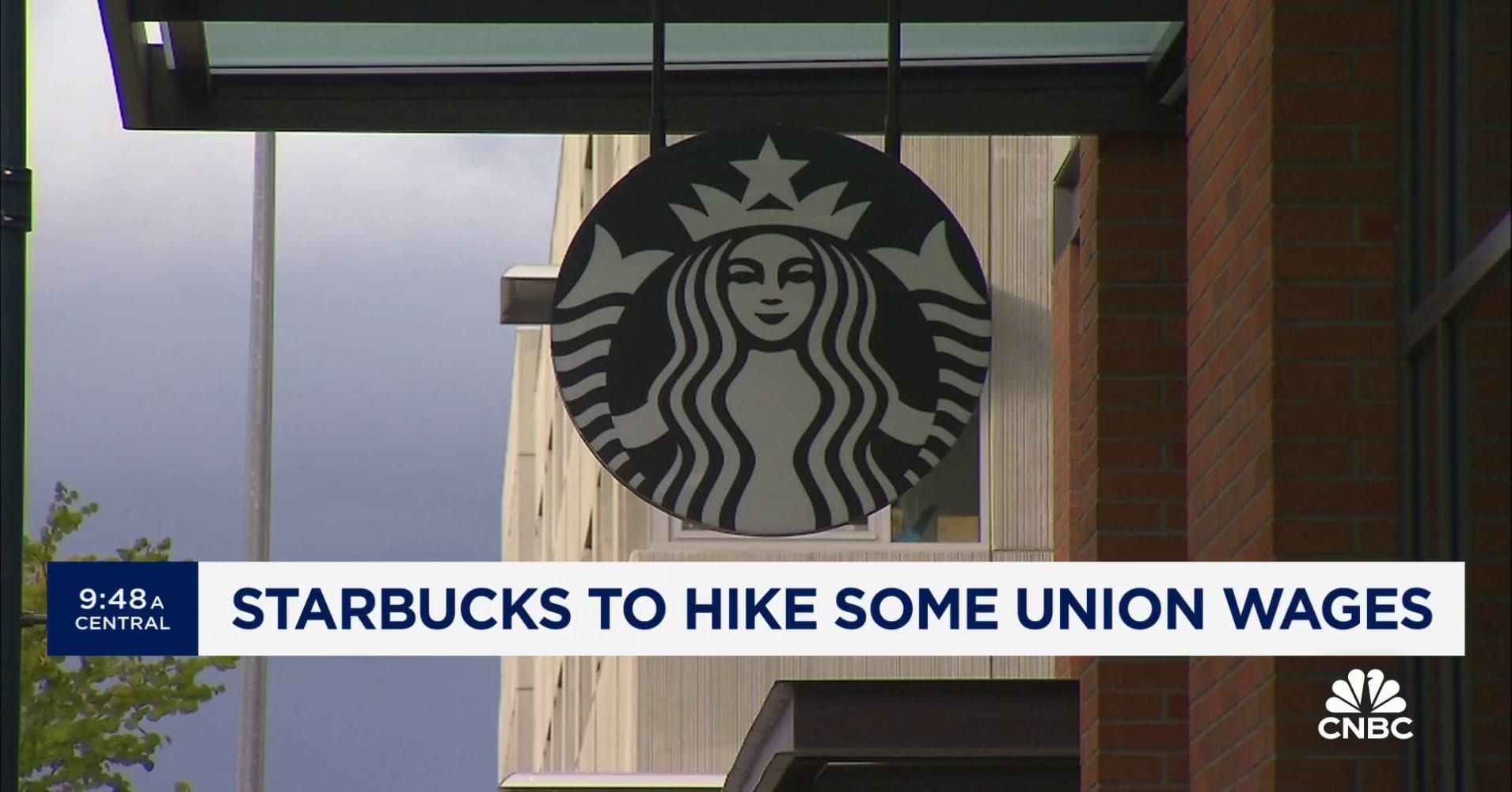Story by Marnie Shure •

Starbucks Workers United union support sign© Photo: Justin Sullivan (Getty Images)
It’s been a hell of a year for the U.S. labor movement, and there’s reason to believe that 2024 is continuing in the right direction. Starbucks has announced it has “reached an important milestone”: The company will come together with the labor union, Starbucks Workers United, to “begin discussions on a foundational framework designed to achieve collective bargaining agreements, including a fair process for organizing, and the resolution of some outstanding litigation.”
If you know anything about Starbucks, this news might come as something of a (pleasant) surprise. Since the formation of the first Starbucks employee union in 2021, America’s second largest fast food chain has taken steps to discourage labor organizing at its stores, even going so far as to send Starbucks executives to Buffalo, New York as soon as the employees joined Workers United. The idea was, apparently, to tamp down unionization efforts before they had a chance to spread.
“If a significant portion of our employees were to become unionized, our labor costs could increase and our business could be negatively affected by other requirements and expectations that could increase our costs, change our employee culture, decrease our flexibility and disrupt our business,” Starbucks wrote in an SEC filing in 2021. Mere months later, multiple employees involved in Memphis unionization efforts were fired (for what Starbucks cited as unrelated reasons).
Related video: Starbucks, Workers United to restart labor talks (FOX 5 New York)Duration 2:10 View on Watch
Starbucks Workers United aims to secure sustainable working conditions. “Building a union across all of the corporate stores in the United States will give us a real voice over our jobs and legal protections that non-union workers do not have,” reads the website’s FAQ page. “We will have the right to negotiate a union contract and have a real voice in setting organization policies, rights on the job, health and safety conditions, protections from unfair firings or unfair discipline, seniority rights, leaves of absence rights, benefits, wages, etc. We can turn Starbucks into a place where workers can have sustainable careers and be rewarded for their years of hard work.”
Within a year of its first unionized store, Starbucks Workers United had grown significantly in membership, and in 2022 the movement embraced a tried-and-true strategy: rallying support for the union specifically on the days that generate Starbucks’ highest foot traffic. #PumpkinSpiceLatte season became Pumpkin Spice Labor season, with a one-day strike staged by thousands of Starbucks United workers at unionized stores around the country.
In 2023, Starbucks Workers United again made their voices heard by staging the second annual Red Cup Rebellion, which called upon all Starbucks baristas and shift supervisors, not just unionized ones, to walk out on Starbucks’ holiday-centric “Red Cup Day,” November 16, in solidarity with those fighting for a better workplace. Customers, too, were encouraged to forego Starbucks on Red Cup Day, and the effort led to a measurable decrease in foot traffic compared to the same event in prior years.
This week, Starbucks and Workers Unitedannounced that the two sides had agreed to begin on a path forward, one that includes a fair process for workers to organize and the eventual establishment of a collective bargaining agreement for all unionized stores. As a show of good faith entering this new phase of cooperation with the union, Starbucks has also announced it will extend certain benefits to unionized Starbucks stores that it had previously withheld from those workers, including credit card tipping.
“While there is plenty of work ahead, coming together to develop this framework is a significant step forward and a clear demonstration of a shared commitment to working collaboratively and with mutual respect,” reads the statement from Workers United.

No comments:
Post a Comment